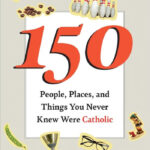By Dan Ebener
For The Catholic Messenger
Luke 15: 4-7
“What man among you having a hundred sheep and losing one of them would not leave the ninety-nine in the desert and go after the lost one until he finds it? And when he does find it, he sets it on his shoulders with great joy and, upon his arrival home, he calls together his friends and neighbors and says to them, ‘Rejoice with me because I have found my lost sheep.’ I tell you, in just the same way there will be more joy in heaven over one sinner who repents than over ninety-nine righteous people who have no need of repentance.”

The feedback we received from the listening sessions for Vision 20/20 indicates that many Catholics do not understand what evangelization is or how it works. One way that Jesus teaches us about evangelization is through his parable of The Lost Sheep. A few things to notice in this story:
First, the shepherd was able to notice that one sheep was missing out of a flock of 100. I would be hard-pressed to notice the difference between a flock of 100 versus 99 sheep. The story suggests that the shepherd was in close relationship with his sheep. He knew one was missing because the flock was incomplete.
Second, Jesus presents the process of “finding” in its simplest form. To “go after the lost one until he finds it” suggests that the shepherd steps out of his comfort zone, leaves behind his usual routine and searches for the lost one. One of the surprises in this story is how enthusiastically he goes after that one sheep.
Third, another surprise in this parable is the excessive celebration in finding the one sheep. The finding of the lost sheep is met “with great joy” and further “joy in heaven.” The shepherd even gathers his neighbors and friends — in his home, not the barn — to welcome and celebrate the return of the lost sheep.
The image of Jesus as the Good Shepherd (see John 10:11-18) has been used in Christian art throughout the ages. In John’s Gospel, the good shepherd is the one who does not leave his flock when the wolf comes but is willing to lay down his life for his sheep. This idea of Jesus as shepherd has been extended to clergy, especially bishops, whose crozier staff is styled to depict a shepherd.
While the image of clergy as shepherd is a good metaphor the problem comes when the rest of us are expected to act like a “flock.” Sheep are passive, submissive and blindly obedient. They would never lead — they just want to be led. Nor are they consulted in the process of deciding where to go or what to do.
More importantly, notice in the parable that the sheep do not go searching for the lost one. That role belongs exclusively to the shepherd. The idea of the congregation as a flock has contributed to the notion that only the clergy are responsible for the work of evangelization, which is going after the lost sheep.
We have reached a breaking point today where most of the flock has gone astray. We can no longer think of lay people merely as sheep. Lay people are called to work side by side with the clergy in the ministry of evangelization. We are called not to be sheep, but shepherds. The work of finding the lost sheep belongs to all of us.
(Dan Ebener is director of parish planning for the Diocese of Davenport.)











